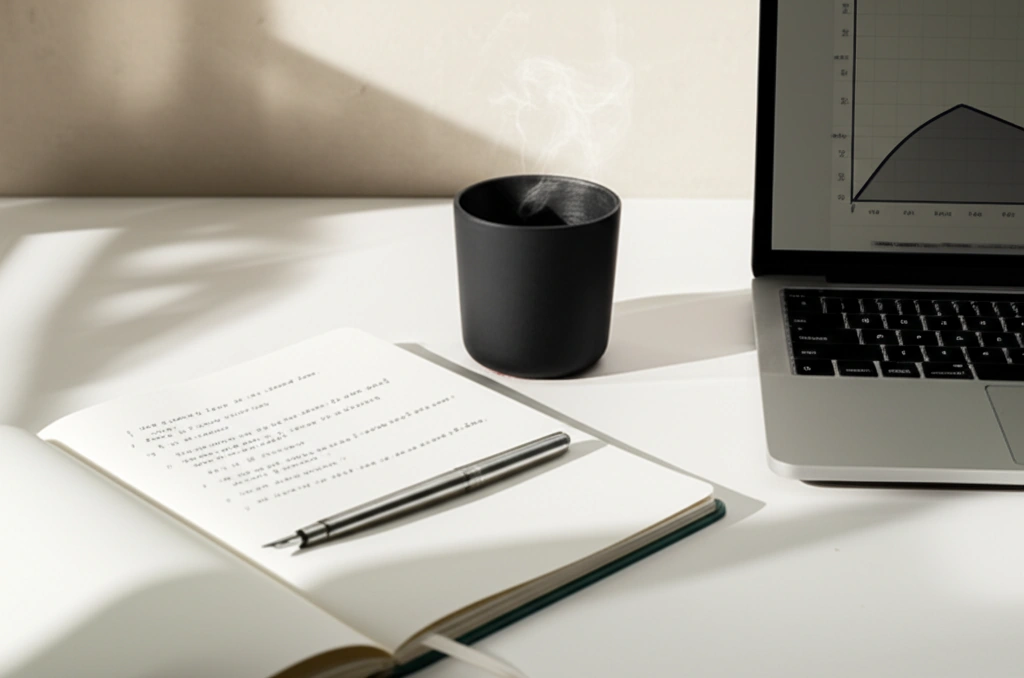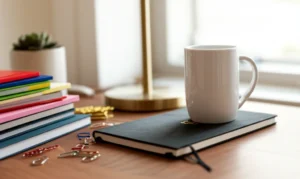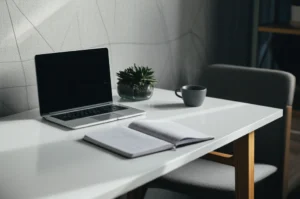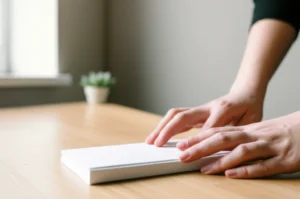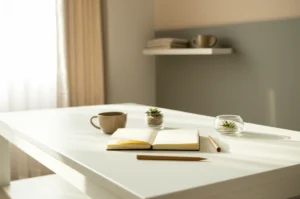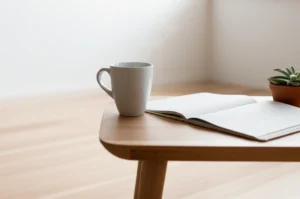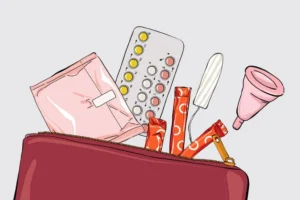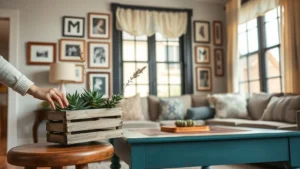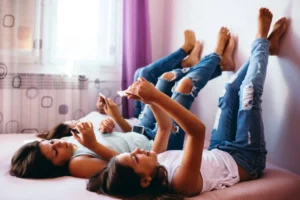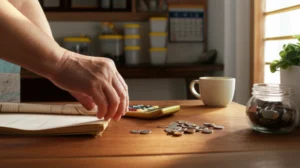You know that feeling when your closet’s stuffed, your desk is buried under sticky notes, and you just… can’t think straight? Yeah, me too. Turns out, we’re not alone. More and more research on minimalism—living with less on purpose—shows this isn’t just about saving space, or money, or time. It’s about reclaiming your headspace, your heart, and sometimes even your sense of who you are.
But let’s not rush ahead. If you’re here, you might be curious, skeptical, or just looking for a real answer to the question: “Is minimalism actually good for me?” Here’s what the latest studies, personal stories, and real-life experiments say—no hype, no marketing speak, just what you need to know.
What the Research Actually Says
When researchers set out to understand minimalism, they didn’t just survey people about how it feels to own less. They dug into the nitty-gritty of psychology, behavior, and even brain chemistry. For example, a 2023 study in Environment, Development and Sustainability discovered that, for millennials especially, minimalism can boost a sense of fulfillment, which in turn dials up overall well-being. In other words, less stuff, more feeling good[1]. Other studies highlight five big themes: autonomy (feeling in control), competence (feeling capable), mental space (less clutter in your mind), awareness (appreciating what matters), and positive emotions (lighter, happier moods)[2]. Isn’t that the kind of life upgrade we all secretly want?
And let’s not forget, according to a study in Sustainable Production and Consumption, minimalism isn’t just personal—it’s sustainable. People who embrace thoughtful consumption, prioritize quality over quantity, and clean out the clutter report feeling less depressed and more emotionally healthy. Who knew your messy closet could actually mess with your mood? (Spoiler: science knew.)
But let’s be honest: Is minimalism a magic fix? Not exactly. It’s more like a tool—one that helps if you use it wisely and know its limits. For some, it’s a revelation. For others, it’s a tough pill to swallow. That’s why this article isn’t a cheerleading monologue. We’ll look at both the bright sides and the rough edges, so you can decide if minimalism could help you.
The Psychology of Minimalism
Ever notice how cleaning your room can clear your mind? Yeah, there’s something to that. Research in positive psychology explains why. When people choose to live with less, they often experience a double win: less anxiety and more freedom. In fact, participants in a 2020 qualitative study—yes, you’re right, real people shared real stories—all mentioned that minimalism gave them more room to breathe, both literally and mentally[2].
Think about it. Every object you own isn’t just a thing—it’s a decision, a responsibility, a backstory. The coffee table you never use? The sweater you swear you’ll fit into someday? Each one quietly demands a piece of your attention. Over time, that mental clutter can add up, making it harder to focus, sleep, or even just relax. Science backs this up: Cluttered environments can actually increase stress hormones like cortisol, especially in women, according to a study discussed on Modern Minimalism. But when people pare down, they often report lower stress, better sleep, and even improved relationships—they’re more present with each other because there’s less “stuff” in the way.
But here’s where it gets interesting. Minimalism isn’t just about having fewer things. It’s about having better things—things you actually value, use, or cherish. And sometimes, it means saying goodbye to stuff that’s just… there, not adding anything. That’s a big shift from the typical materialism vs minimalism tug-of-war we all feel at times. Materialism tells us to accumulate, impress, and compare. Minimalism whispers: What do you really want?
How Studies Measure Minimalism
Okay, let’s get nerdy for a second. How do researchers actually study something as personal—and sometimes vague—as minimalism? Sometimes, they use surveys to ask how much stuff you own or how important material things are to you. Other times, they sit down for real, juicy interviews, to hear the messy, honest stories behind the numbers[2].
Scales and questionnaires try to measure things like “voluntary simplicity” or “environmental concern”—basically, how much you believe in less is more. These studies often look at big groups of people to spot trends, but the best research also digs into the individual experiences, the “why” behind the choice to live with less. That’s where the real insights come from.
| What Studies Measure | Example | What It Tells Us |
| Material values | Questionnaires about possessions, spending | How much you value stuff versus experiences |
| Well-being changes | Stress levels, happiness, life satisfaction | Does minimalism improve mental health? |
| Behavioral choices | Decluttering habits, shopping patterns | Do actions match beliefs? |
By the way, these studies aren’t perfect. A lot of them are small, rely on self-reports (ever fibbed on a survey about your habits? No judgment.), and don’t always track people for years to see if the changes last. That’s why the research is always evolving—but the trends are surprisingly consistent.
Advantages: What Minimalism Gets Right
If you’re wondering, “What’s in this for me?”—let’s break it down. Here are the highlights science and real people say they’ve gained from minimalism:
- Lower stress: Studies show that clutter can actually make you more stressed, anxious, and even less productive. When people simplify, they often feel lighter—sometimes literally and emotionally.
- More freedom: Owning less means maintaining less, fixing less, and worrying less. That leaves more energy for the things you love—or just for breathing.
- Better relationships: When you’re not focused on stuff, you’re more present with people. Research shows that people who value experiences over possessions tend to have richer, deeper connections.
- More money, less debt: Buying less means spending less. Over time, this can add up to real savings—sometimes even enough for that trip you’ve been dreaming about.
- Clearer thinking: When your environment is calm, your mind can be, too. You might notice you’re more creative, able to focus, and better at solving problems.
For a deeper dive into the mental health side, check out minimalism and mental health, where science and stories meet.
And if you want to see minimalism in action (not just a philosophy or trend), there are plenty of real-world examples. Sometimes, people are pushed into it—like after a loss, a move, or a financial reset. Other times, they experiment, like the 21-day challenges promoted by The Minimalists, to test whether living with less actually feels better. Spoiler: For many, it does. But, of course, life’s rarely that simple.
Disadvantages: What the Research Doesn’t Always Mention
Let’s be real—minimalism isn’t a one-size-fits-all solution, and research is starting to catch up with that. While many studies highlight the benefits, there are real disadvantages of minimalism that deserve a spotlight, too.
For starters, choosing minimalism is one thing. Having it forced on you—because of poverty, trauma, or circumstance—is another. When minimalism isn’t a choice, it doesn’t always bring the same sense of control or freedom.
Then there’s perfectionism. Some people get so focused on owning less that they beat themselves up for “failing”—buying something, keeping a memento, or not being that Instagram-famous minimalist with three shirts and a yoga mat. That pressure can backfire, leading to guilt, shame, or even more anxiety.
And, believe it or not, minimalism can complicate relationships. Imagine the tension when you want to toss everything, but your partner or family are, well, not on board. Or the frustration if you have to replace quality with affordability—sometimes, owning less means spending more upfront on durable, lasting items.
But what about the research itself? It’s not perfect. Most studies rely on people’s memories and feelings, not on brain scans or long-term tracking. There’s a risk of “survivorship bias”—people who stick with minimalism are more likely to report good outcomes, while those who quit or struggle may not even be counted.
So, yes, the research on minimalism is promising—but it’s also new, nuanced, and, dare I say, a bit messy. Like life.
Real-Life Stories and Unspoken Truths
Sometimes, the best insights come not from research papers, but from people’s everyday lives. Maybe you know someone who downsized their home and felt a weight lift. Or maybe you read about someone forced into minimalism by loss—like losing their home in a fire—and how it changed everything about what “enough” means.
These stories matter. They remind us that minimalism isn’t just about things—it’s about meaning. When people let go, they often discover what’s still there when the stuff is gone. Sometimes, that’s love. Sometimes, it’s fear. Sometimes, it’s just a little peace.
And for those curious, minimalism isn’t a fixed minimalism lifestyle definition. It’s fluid. For some, it’s a capsule wardrobe and a white wall. For others, it’s getting rid of habits, obligations, or toxic relationships—anything that doesn’t let them be who they want to be.
There’s no rulebook. That’s simultaneously freeing and terrifying.
How to Try Minimalism Without Losing Yourself
If you’re curious, here’s the honest, no-judgment advice: Start small. Try decluttering one drawer, or one corner of your kitchen. Pay attention to how it feels—do you breathe easier, or do you panic? Both are valid.
Ask yourself: What’s the real goal? Less stress? More time? More money? A clearer mind? Pinpointing your “why” can make the process more meaningful and less like a trend.
Experiment. Borrow ideas from the 21-day challenges, or invent your own. Notice what you miss, and what you don’t. There’s no prize for being the most minimalist—just for being happy, healthy, and yourself.
And remember: Minimalism is a journey, not a destination. You can change your mind, your approach, even your stuff. The goal isn’t to arrive at some perfect version of “enough.” It’s to pay attention, stay curious, and do what works for you.
What’s Next in Minimalism Research?
Science is just catching up to something people have known for centuries—sometimes, less is more. Future research hopes to answer deeper questions: Does minimalism help with mental illness? Can it improve financial resilience? How does it affect kids, families, or communities? The questions are endless, and the answers are evolving.
For now, the takeaway from research on minimalism is clear: There’s real evidence that living with less can free up your mind, your time, and your emotions—especially when it’s a choice, not a burden. But it’s not a miracle cure, and it’s not for everyone all the time.
The best advice? Listen to the studies, listen to the stories, and most of all—listen to yourself. You know what you need better than any trend or tweet ever could.
Wrapping Up: What Matters Most?
Here’s the real bottom line. Research on minimalism suggests that, for many people, living with less stuff can lead to more clarity, connection, and calm. It’s not about how much you own, but how much you enjoy, appreciate, and use what you have. It’s about making space—physically and mentally—for what matters most to you.
But like any big life change, minimalism comes with trade-offs. It’s not always easy, not always fun, and definitely not a magic solution for every problem. Sometimes, the best path is a little bit of everything—a touch of minimalism, a dash of comfort, a lot of self-awareness.
If you’re curious, start where you are. Try something new. Notice how it feels. Adjust as you go. And if you ever feel lost, remember: Even the research is still learning. We’re all figuring it out, one day—and one less thing—at a time.
What do you think? Have you tried minimalism, or are you curious about it? What’s your biggest challenge—letting go, or knowing where to start? If you have questions or stories, I’d love to hear them! And if you’re ready for more, check out the links throughout this article—science, definitions, and real talk about what minimalism can (and can’t) do for you.
At the end of the day, minimalism is just a tool—a way to focus on what truly matters, so you can spend your energy on the people, passions, and moments that make life rich. And sometimes, that’s the best discovery of all.

